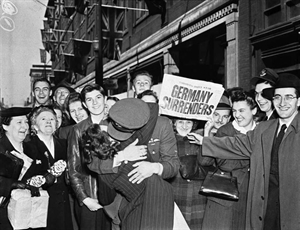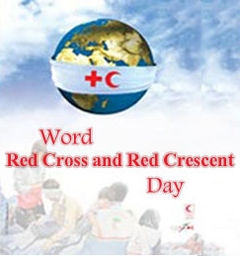Free Trade Day 2024 is on Wednesday, May 8, 2024: what is argument for free trade?
Wednesday, May 8, 2024 is Free Trade Day 2024. World Fair Trade Day Plans ... Fair Trade Resource Network is
As an Amazon Associate I earn from qualifying purchases.

First off what is Free Trade?
free trade
–noun
1. trade between countries, free from governmental restrictions or duties.
2. international trade free from protective duties and subject only to such tariffs as are needed for revenue.
3. the system, principles, or maintenance of such trade.
4. Chiefly Scot. smuggling.
From my point of view there are two major points to free trade. First off is that allows trade between people from different parts of the world with different resources. For instance I eat allot of produce from south america during the winter months because their climate can grow it during that time frame and mine can not. Some places have certain types of minerals (ie. Diamonds in africa) available to them, some have strong fishing stock, others have natural gasses. By working together all the people of the earth can pool our resources so that everyone has a richer fuller life. It should become quickly apparent that international trade is generally beneficial in many ways. There are those that disagree based on either bias or the wishes to hoard resources for ones own usage only.
The second part to this is should trade be regulated between countries by the governments of those countries and too what degree. I feel that like most things in life the middle ground is the proper choice. Some control is required to safe gaurd people from profit greedy companies. At the same time checks are required to protect companies from greedy governments. And hopefully balances will protect governents from the greedy people who take advantage of positions of power afforded by government office.
Left to their own devices companies will strip resources from indegenous groups, take advantage of underprivelleged work forces, remove national treasures from the countries that value them, import dangerous and hostile species to fragile ecosystems, and price gouge the vulnerable; all in order to maximise profits. On the other hand over anxious gevernments can easily cut off valuable resources to the people in their countries, soends millions of dollars on unneeded controls, hamper the development of foreign countries, and even keep foreign work oppurtunities from comming into their own country, all because a single individual wishes to protect their votes or bows to the bribes of lobbiests rather than doing the "right thing" and making an informed decision that betters the lives of the people they represent.
So how much control should their be? Well that changes from day to day based off more variables than anyone could really gauge. So I guess either "more or less".

Providing a recent example, explain what is meant by free trade.?
Free trade is a system in which the trade of goods and services between or within countries flows unhindered by government-imposed restrictions. Such government interventions generally increase costs of goods and services to both consumers and producers. Interventions include taxes and tariffs, non-tariff barriers, such as regulatory legislation and quotas, and even inter-government managed trade agreements such as the North American Free Trade Agreement (NAFTA) and Central America Free Trade Agreement (CAFTA) (contrary to their formal titles.) Free trade opposes all such interventions. Trade liberalization entails reductions to these trade barriers in an effort for relatively unimpeded transactions
NAFTA was initially promoted by politicians in the United States and Canada supportive of free trade, led by Canadian Prime Minister Brian Mulroney, U.S. President George H. W. Bush, Mexican President Carlos Salinas de Gortari. The agreement was pursued by business interests in all three countries[7] and opposed by labor, environmental, and other business interests, in all three countries.[8][9][10][11][12] The heads of state of all three countries signed NAFTA in December 1992, subject to ratification by the legislatures of the three countries.
In the United States, NAFTA was able to secure passage after Bill Clinton made its passage a major legislative priority in 1993. Clinton's Trade Representative, Mickey Kantor, was a strong advocate of the treaty. Since the agreement had been signed by Bush under his fast-track prerogative, Clinton did not alter the original agreement, but complemented it with the aforementioned NAAEC and NAALC. After intense political debate and the negotiation of these side agreements, the U.S. House of Representatives passed NAFTA on November 17, 1993, by 234-200 vote (132 Republicans and 102 Democrats voting in favor; 43 Republicans, 156 Democrats, and 1 independent against),[13] and the U.S. Senate passed it on the last day of its 1993 session, November 20, 1993, by 61-38 vote (34 Republicans and 27 Democrats voting in favor; 10 Republicans and 28 Democrats against, with 1 Democrat opponent not voting -- Sen. Byron Dorgan (D-ND), an ardent foe of NAFTA, missed the vote because of an illness in his family).[14]
Maquiladoras (Mexican factories which take in imported raw materials and produce goods for export) have become the landmark of trade in Mexico. These are plants that moved to this region from the United States, hence the debate over the loss of American jobs. Hufbauer's (2005) book shows that income in the maquiladora sector has increased 15.5% since the implementation of NAFTA in 1994. Other sectors now benefit from the free trade agreement, and the share of exports from non-border states has increased in the last five years while the share of exports from maquiladora-border states has decreased. This phenomenon has allowed for the rapid growth of non-border metropolitan areas, such as Toluca, León and Puebla; all three larger in population than Tijuana, Ciudad Juárez, and Reynosa. The main non-maquiladora industry that has benefited from NAFTA is the automobile industry.
Another prime example is moving Hershey Chocolate to Mexico because of cheaper labour. There by shutting down the factory in Hershy PA. alrady people are noticing a difference in the chocolate products they buy.

Cheap/Free online share trading accounts?
Some brokerages give you free trades for the first 30 days when you open an account - I know that Scottrade and Ameritrade does this.
Smaller brokerages also offer cheaper commissions - for example, Optionshouse charges only $3.96 per trade, I believe ( Think they also give some free trades upon opening an account ). But there are also SEC fees and other stuff that will add up.
I also have heard of an outfit called Zecco that used to offer free trades ; don't know if it exists by now, no one can survive giving free trades.
Not endorsing any brokerage; you need to do your own research and comparison.















